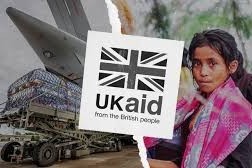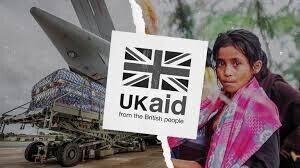
posted 3rd March 2025

Foreign aid is when one country gives another country something for free. It provides them with goods (food, fuel, medicines etc.) or services (doctors, nurses, teachers, trainers etc.) and does not ask for payment in return. Normally, richer countries offer aid to poorer countries.
Why would a government want to give stuff and people away for nothing? What is the point of foreign aid? Is it a good thing or a bad thing? As so often, we can break down the arguments into pragmatism and principles; what works, and what’s the right thing to do.
For foreign aid
Pragmatic reasons
Foreign aid is an example of soft power. It promotes goodwill towards the country which offers it. It also makes it easier for the giver to exercise influence over the recipient. It makes the recipient more likely to support the giver’s policies and interests.
Foreign aid makes the world safer and more stable. Countries with lower levels of poverty are less likely to descend into war and violence, and will be better equipped to deal with natural disasters. Wars promote terrorist groups who may attack richer countries; wars and natural disasters force millions of people to flee, creating a flow of immigrants to richer countries, thereby straining public services and social cohesion. Foreign aid is therefore not an expense, but an investment in our safety.
Foreign aid makes countries more prosperous. By investing in a better educated, healthier, safer population, we are creating a bigger market for the goods and services we sell to those countries.
Principled reasons
We are fortunate to live in a (relatively) prosperous country. We ought to help those less fortunate than ourselves. It is immoral to see people starving or dying from preventable diseases and to do nothing about it.
Foreign aid reminds us that we are one human race, and that borders and nations are artificial constructs. As the Inspector in J.B. Priestley's play An Inspector Calls reminds us, we are all responsible for each other.
Against foreign aid
Pragmatic reasons
Once we have handed over the money, it is very hard to control what is done with it. Given that the majority of foreign aid goes to countries which are already unstable and corrupt, it is highly likely that the money will end up in the pockets of dishonest officials and will not go to the people who need it.
If countries, and people, get used to having something for nothing, they will not be incentivised to work harder and be more productive. Inefficiency and corruption will not be challenged. This is in no one’s interests, including those of the recipient countries. You will help poor countries far more by buying and selling with them, helping their economies to grow: trade, not aid.
Principled reasons
Foreign aid is a sanitised form of colonialism. Rich countries patronise poor countries; in return for handouts, they tell them how they should run their hospitals and teach their children. It keeps them subservient and dependent, undermining their self-respect.
It is simply wrong to give someone something for nothing. Countries as much as people should work for their living. As the slogan of The Big Issue (a magazine sold by homeless people) says: working, not begging. This is fairer, and is also better for the self-respect of poorer countries.
Motions that go with this topic
1. This house would cut foreign aid
2. This house would increase foreign aid
3. This house would not give foreign aid to countries with a poor human rights record.
4. This house would make foreign aid dependent on adherence to democratic values.





